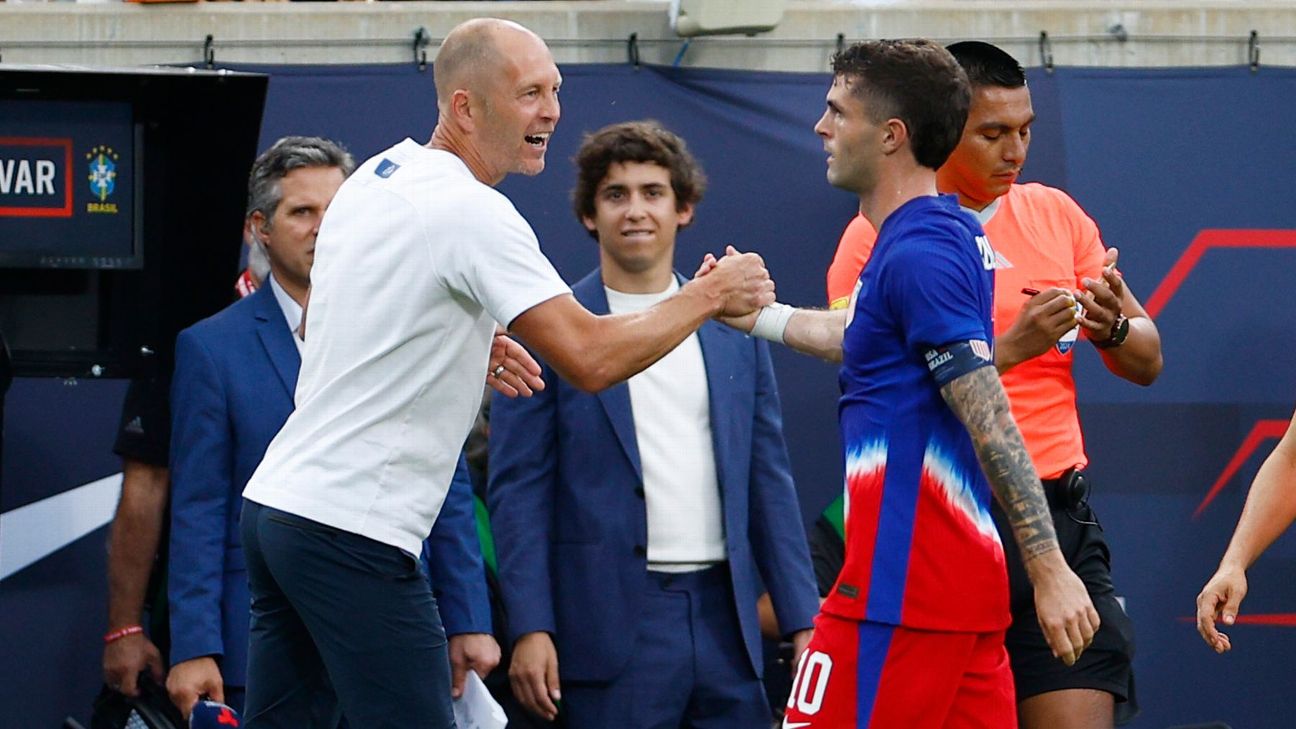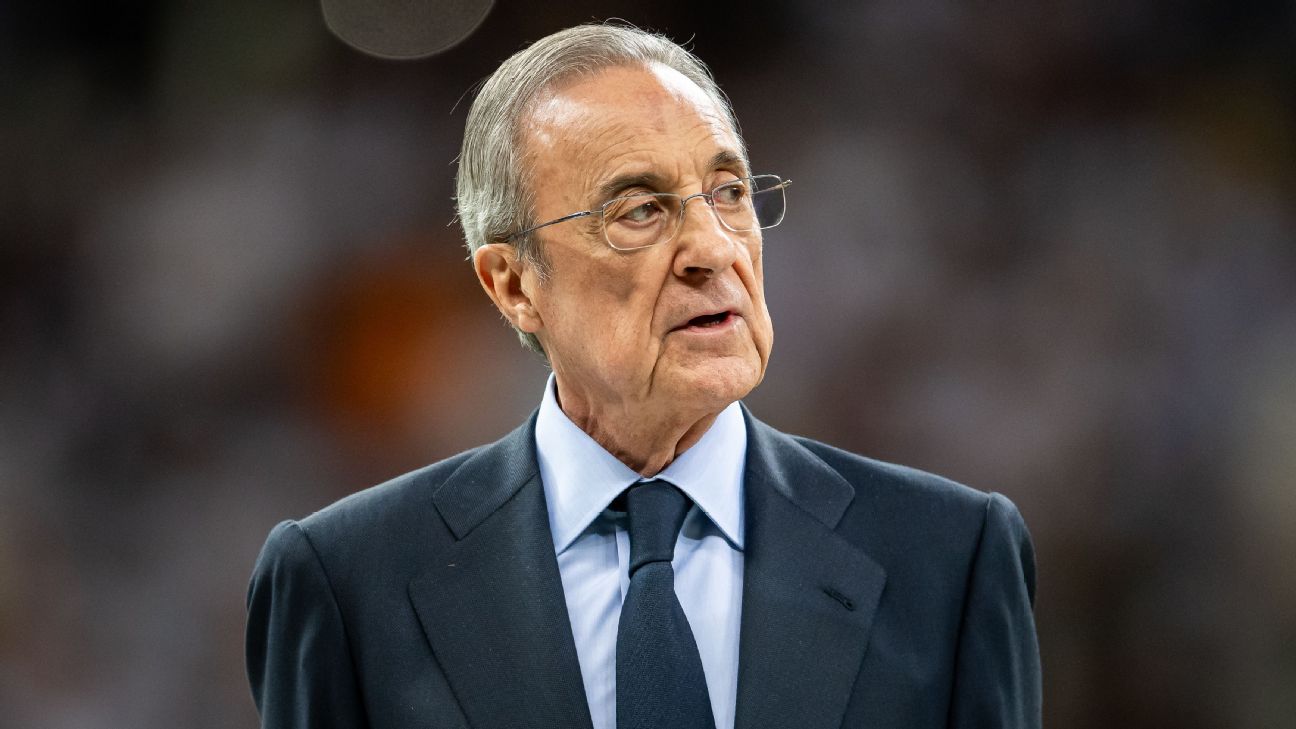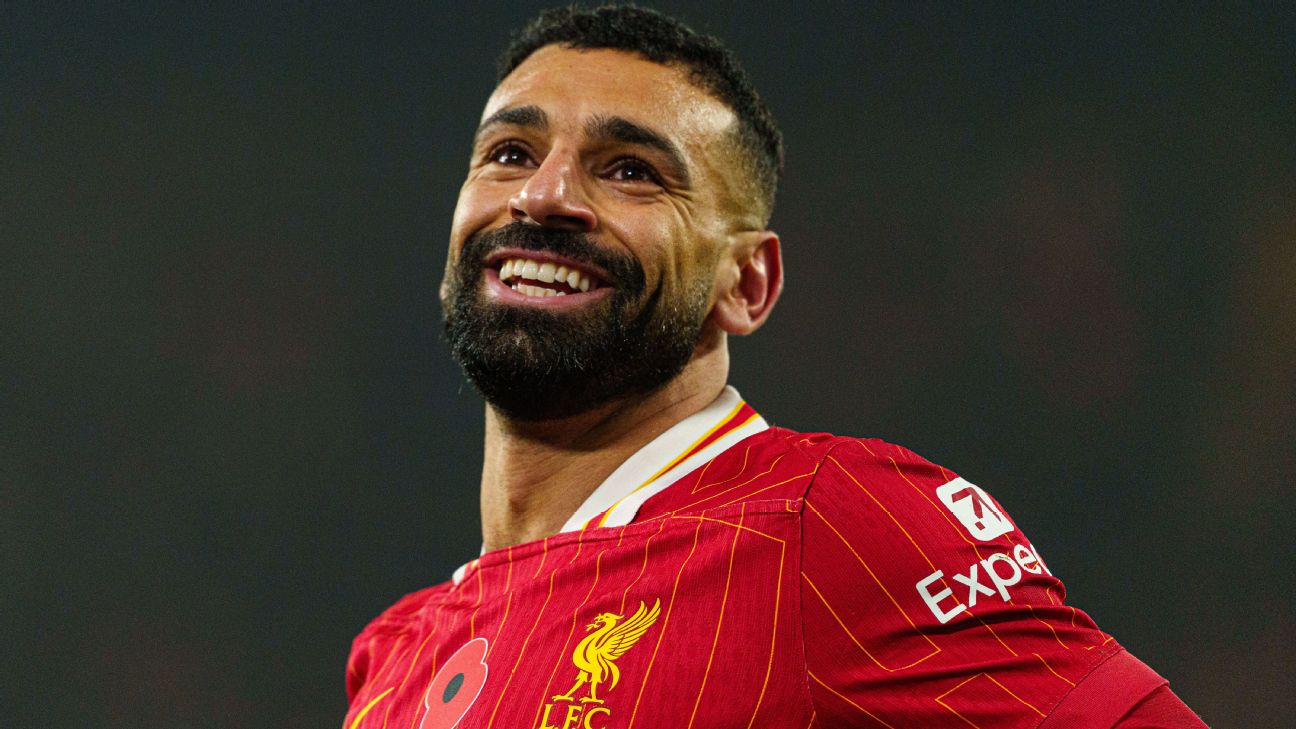ORLANDO, Florida — As United States men’s national team goalkeeper Matt Turner prepared to answer questions in the postmatch mixed zone Wednesday, he found himself face-to-face with United States legend Kasey Keller. The former USMNT keeper offered up his congratulations to Turner for the latter’s heroics in the 1-1 draw against Brazil.
After Keller had departed, Turner remarked, “That was cool. What a guy.”
It was fitting that the two should exchange a quick word, as they now share the rare distinction of avoiding defeat against Brazil. It was Keller’s stellar performance against the Seleção back in the semifinals of the 1998 Gold Cup that almost single-handedly led the U.S. to a 1-0 win. The stunned look on the face of Brazilian World Cup winner Romario, as Keller made save after save, remains etched in the memory.
On Wednesday, it was Turner’s opportunity to shine. To be clear, it wasn’t perfect. Turner’s wayward pass in the 17th minute helped set the table for Rodrygo to put Brazil in the lead. But Turner righted himself, delivering 10 saves, including a blast from Rodrygo in the 74th minute. The fact that the U.S.’s record against Brazil now stands at 1-18-1 reveals just how uncommon such a result is.
Contrast this performance with that of last Saturday against Colombia, one in which the U.S. were shellacked 5-1. Turner seemed overwhelmed at times, and given the way that he has struggled for minutes and form while at Nottingham Forest this season, concern was starting to mount that he might not be the man to start in goal for the U.S. For the moment, he has quieted those doubts.
“It’s been a tough couple of months for me personally on the pitch,” he said. “So to have the opportunity to be out here again and feel the trust that my teammates have in me and my coaches have in me here, it’s huge. It speaks volumes to me. So I was grateful to be able to perform well tonight. It won’t always be like that, but I think you are only as good as the guys around you.”
Turner’s performance in large part mirrored that of the team; there were blemishes, but it was a huge improvement on last Saturday, one replete with increased resolve and execution. Christian Pulisic delivered the equalizer with a powerful free kick in the 26th minute, and he came agonizingly close to winning the match in the 68th minute only to be thwarted by Brazil keeper Alisson. Brenden Aaronson suffered the same fate after being set up by Pulisic 15 minutes later. The defense, much maligned after the Colombia debacle, bent plenty in the face of attackers like Vinícius Júnior and Raphinha, but it held firm.
The teamwide eagerness to do the dirty work provided the backbone to earn a most unlikely result.
“I think it was just a willingness to defend, get numbers behind the ball in transition, getting numbers back much [quicker], just a lot smarter and not losing balls in the wrong areas and just giving them easy opportunities,” Pulisic said. “And yeah, just a team spirit of willingness to also suffer at times and then find our chances. So, definitely a big step in the right direction.”
The U.S. also used its collective brain as well. The team, as well as manager Gregg Berhalter, has been criticized for at times wanting to play the ball out of the back at all costs, and that predictability — or stubbornness — worked against it in the Colombia match. On Wednesday, there was more of a willingness to hit long passes and fight for second balls, especially from goal kicks.
“I think our biggest takeaway from the game on the weekend was that sometimes you switch up from the game plan. You can’t just be robots out there,” defender Chris Richards said. “You have to have a feel for the game. And so I think that’s what we did tonight, with mixing it up and rather than just playing out the whole time. Sometimes you had to go direct and it’s OK to reset.”
International tournaments, and the friendlies that precede them, are invitations to become a prisoner of the moment. The U.S. isn’t quite as terrible as it was against Colombia. It’s also dangerous to think that a draw against Brazil means everything is sweetness and light. The U.S. midfield remains a work in progress.
One should also consider the U.S. team’s rather curious history under Berhalter where it has delivered some dreadful performances ahead of major tournaments. In 2019, prior to that year’s Gold Cup, the U.S. lost preparation games to Jamaica and Venezuela, the latter by a 3-0 scoreline. Prior to the 2022 World Cup, there was a heavy 3-0 defeat to Japan, which was followed by a dour 0-0 draw against Saudi Arabia. In both cases the U.S. went on to have successful tournaments. Granted, it’s not a guarantee of anything, which might explain Berhalter’s muted reaction to this match, even as he lauded his side’s teamwork and intensity.
“We feel like we made a little step. It’s not a huge step, but it’s a little step to be able to play against an amazingly talented Brazil team and bend but not break,” he said.
It would be a stretch to say the U.S. is operating at its peak, but there is certainly a sense of increased momentum about the group that wasn’t there following the Colombia result. And the manner of the result against Brazil provides some hope. There was a time when the U.S. was notoriously difficult to play against. That trait hasn’t shown itself with the same level of consistency in the last decade or so. That it did so on this evening counts as a positive development. It will be needed in the coming weeks.
Now the Copa America awaits. Group C, in which the U.S. will face Bolívia, Panama and Uruguay, ought to be navigable. But the U.S. isn’t in the kind of position where it can just turn up and expect to get results. That does seem to be one of the primary takeaways from these last two friendlies. It’s a lesson that shouldn’t need reinforcing given this team’s level of experience, but better for it to happen now than in the actual Copa itself. For now, the U.S. can enjoy a rare result against one of the world’s best.
As Berhalter said, “It’s a good end to preparation camp. We’re ready for Copa America.”



